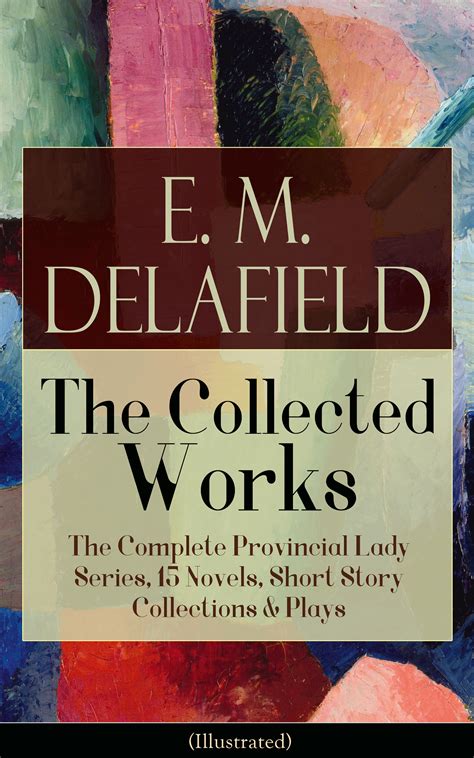A Quote by Ian Mcewan
She had lolled about for three years at Girton with the kind of books she could equally have read at home--Jane Austen, Dickens, Conrad, all in the library downstairs, in complete sets. How had that pursuit, reading the novels that others took as their leisure, let her think she was superior to anyone else?
Related Quotes
I started reading seriously at seven or eight, books about myths and legends, the Narnia series. By the time I was 11, I had read all the children's books in my local library, so I moved on to 'Jane Eyre.' What I loved about Jane Eyre was that she didn't rely on her looks but her character. She had a spirit nobody could break.
From an early age she had developed the art of being alone and generally preferred her own company to anyone else’s. She read books at enormous speed and judged them entirely on her ability to remove her from her material surroundings. In almost all the unhappiest days of her life she had been able to escape from her own inner world by living temporarily in someone else’s, and on the two or three occasions that she had been too upset to concentrate she had been desolate.
Forever, reading has been central, the necessary fix, the support system. Her life has been informed by reading. She has read not just for distraction, sustenance, to pass the time, but she has read in a state of primal innocence, reading for enlightenment, for instruction, even. ... She is as much a product of what she has read as of the way in which she has lived; she is like millions of others built by books, for whom books are an essential foodstuff, who could starve without.
I remember one letter from a girl in a midwestern town who read one of my books and thought she had discovered it- that no one had ever read it or knew about it. Then one day in her local library she found cards for one or two of my other books. They were full of names- the books were borrowed all the time. She resented this a bit and then walked around the town looking in everybody's face and wondering if they were the ones who were reading my books. That is someone I write for.
In Tereza’s eyes, books were the emblems of a secret brotherhood. For she had but a single weapon against the world of crudity surrounding her: the novels. She had read any number of them, from Fielding to Thomas Mann. They not only offered the possibility of an imaginary escape from a life she found unsatisfying; they also had a meaning for her as physical objects: she loved to walk down the street with a book under her arm. It had the same significance for her as an elegant cane from the dandy a century ago. It differentiated her from others.
My mother lived her life through movies and books - she read everything there was to read. And she read to me every night. I never went to sleep without her reading to me. And she fantasized about the book and she would talk about it, the place, and you would think that after she read the book and after she told you stories about it, that she had actually been there. I learned about story from her, and I learned the value of a great story, and the value of great characters.
She was made up of more, too. She was the books she read in the library. She was the flower in the brown bowl. Part of her life was made from the tree growing rankly in the yard. She was the bitter quarrels she had with her brother whom she loved dearly. She was Katie's secret, despairing weeping. She was the shame of her father stumbling home drunk. She was all of these things and of something more...It was what God or whatever is His equivalent puts into each soul that is given life - the one different thing such as that which makes no two fingerprints on the face of the earth alike.
When I lost my wife I had a whole different concept of her life. She lived 21 years and people who knew her know it wasn't about the great things she did on this earth. It wasn't that she had money or had popularity, it was that she loved Jesus Christ more than anything else in this world. That was how she related to the world.
She imagined herself both queen and slave, dominatrix and victim. In her imagination she was making love with men of all skin colors--white, black, yellow--with homosexuals and beggars. She was anyone's, and anyone could do anything to her. She had one, two, three orgasms, one after another. She imagined everything she had never imagined before, and she gave herself to all that was most base and most pure.
She became politically conscious thanks to Studs Terkel and the radio. She started reading all the books we brought home from college and was a great fan of Noam Chomsky. She was a real lefty and yet was not able to meet her dream of becoming an artist. She got drafted into motherhood big time - seven kids - and that wasn't the life that she had planned. So she opened the path so that I could be the artist that she wanted to be.
I am a Jane Austenite, and therefore slightly imbecile about Jane Austen. My fatuous expression, and airs of personal immunity-how ill they sit on the face, say,of a Stevensonian! But Jane Austen is so different. She is my favourite author! I read and reread, the mouth open and the mind closed. Shut up in measureless content, I greet her by the name of most kind hostess, while criticism slumbers.






































